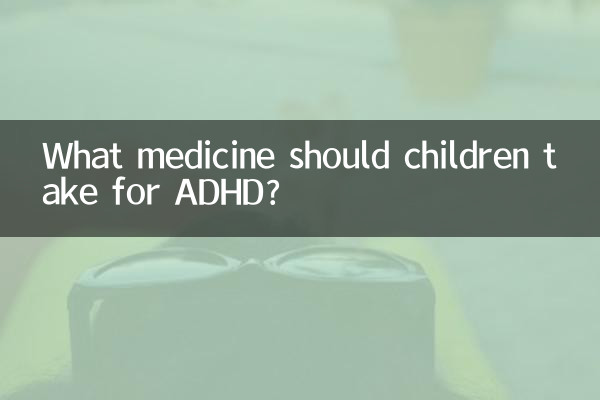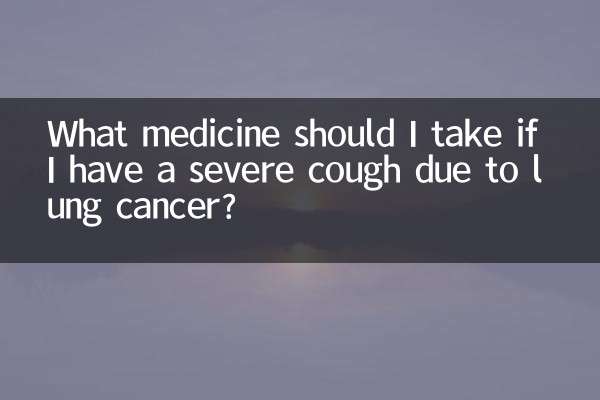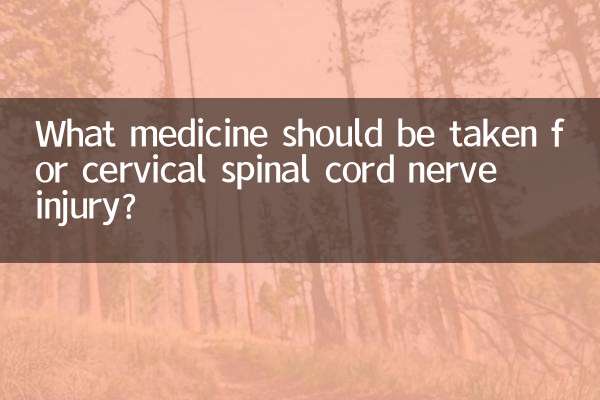What medicine should children take for ADHD?
In recent years, the incidence of ADHD in children has increased year by year, becoming the focus of attention of parents and educators. ADHD not only affects a child's learning efficiency, but may also affect their social skills and mental health. Drug treatment is one of the important means of comprehensive intervention for ADHD. This article will combine the hot topics and hot content on the Internet in the past 10 days to conduct a structured analysis of commonly used drugs for children with ADHD and their precautions.
1. Common drugs for ADHD in children

The following are the drugs commonly used clinically to treat ADHD in children and their characteristics:
| Drug name | type | Mechanism of action | Common side effects |
|---|---|---|---|
| Methylphenidate (such as Ritalin) | central nervous system stimulants | Improves concentration by increasing dopamine and norepinephrine levels | Insomnia, decreased appetite, headache |
| Atomoxetine (such as Zestar) | non-central nervous system stimulants | Selective inhibition of norepinephrine reuptake | Drowsiness, gastrointestinal discomfort |
| Dextroamphetamine (such as Adderall) | central nervous system stimulants | Stimulates dopamine and norepinephrine release | Rapid heartbeat, mood swings |
| clonidine | alpha-2 adrenoceptor agonist | Modulates activity in the brain's prefrontal cortex | low blood pressure, dizziness |
2. Precautions for drug treatment
1.personalized medicine: Each child’s symptoms and constitution are different, and the doctor will choose the appropriate drug and dosage according to the specific situation. Parents should never adjust the medication regimen on their own.
2.Regular follow-up visits: During drug treatment, regular follow-up visits are required to evaluate the efficacy and side effects, and adjust the dosage or change drugs if necessary.
3.Combined with behavioral intervention: Medication often needs to be used in conjunction with behavioral interventions (such as cognitive behavioral therapy, family education, and school support) to achieve optimal results.
4.Pay attention to side effects: Some drugs may cause loss of appetite, insomnia or mood swings. Parents need to pay close attention to their children's physical and psychological changes and communicate with doctors in a timely manner.
3. Frequently Asked Questions for Parents
1.Do drugs make children stupid?: Rational use of drugs will not affect children's intellectual development, but can help them concentrate better.
2.Do I need to take medicine for a long time?: The treatment cycle for ADHD varies from person to person. Some children may need long-term medication, but the doctor will gradually adjust it according to the situation.
3.Are there alternative treatments?: Some parents try dietary adjustments, Omega-3 supplements or traditional Chinese medicine treatment, but there is currently insufficient evidence to support the efficacy of alternative medicines.
4. Latest research trends
According to recent hot topics, the following are the research developments related to childhood ADHD:
| research topic | Main content | source |
|---|---|---|
| New non-stimulant drugs | Study shows new drug reduces side effects, improves tolerability | "Lancet·Psychiatry" |
| Digital therapy-assisted treatment | AI-powered attention training software improves drug treatment effectiveness | American Academy of Pediatrics |
| Genetic testing guides medication | Predict drug response through genetic analysis to achieve precision medicine | "Nature Neuroscience" |
5. Summary
Drug treatment of ADHD in children requires a scientific and rigorous attitude. Parents should choose appropriate drugs under the guidance of professional doctors and based on their children's actual conditions, and closely cooperate with behavioral intervention and regular follow-up visits. At the same time, pay attention to the latest research progress to provide more comprehensive support for children.
The content of this article is based on the hot topics on the Internet in the past 10 days. It is intended to provide structured information reference. Please follow your doctor's advice for specific medication.

check the details

check the details